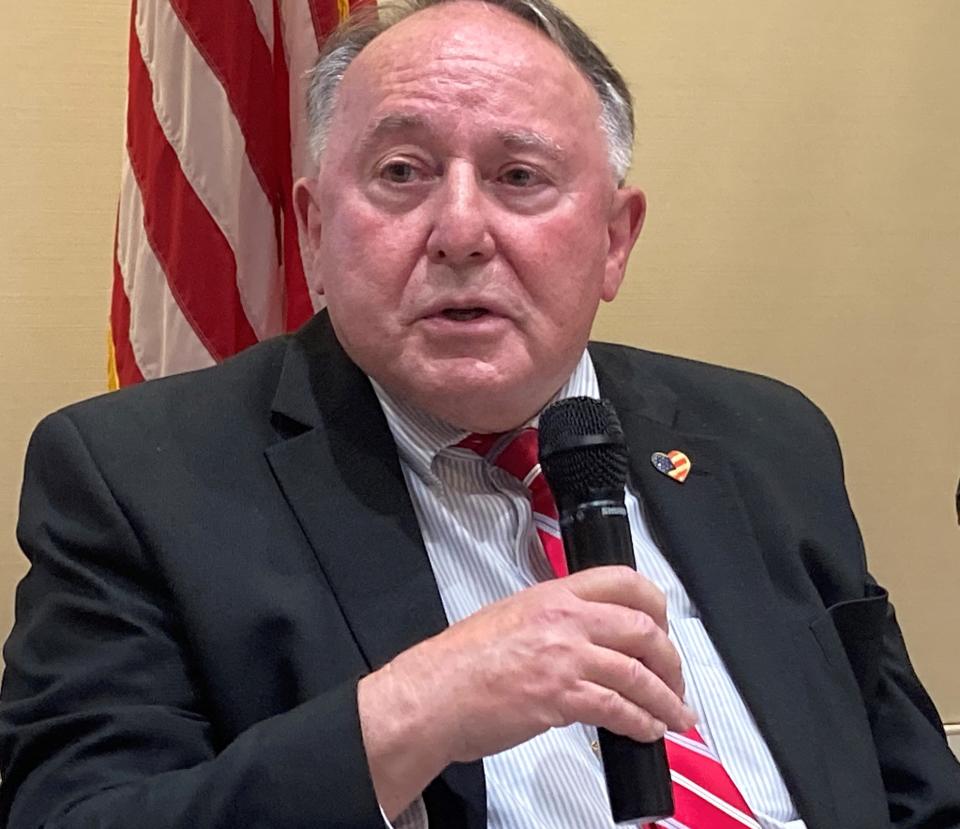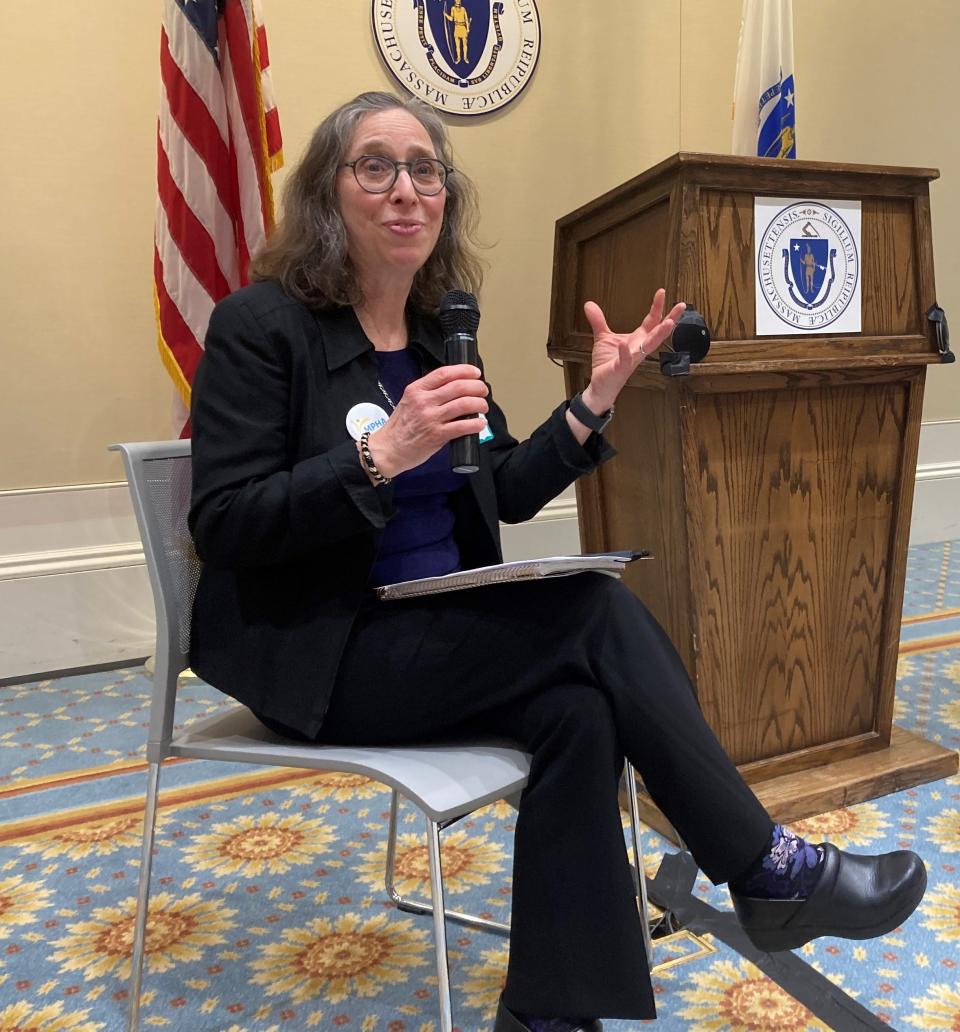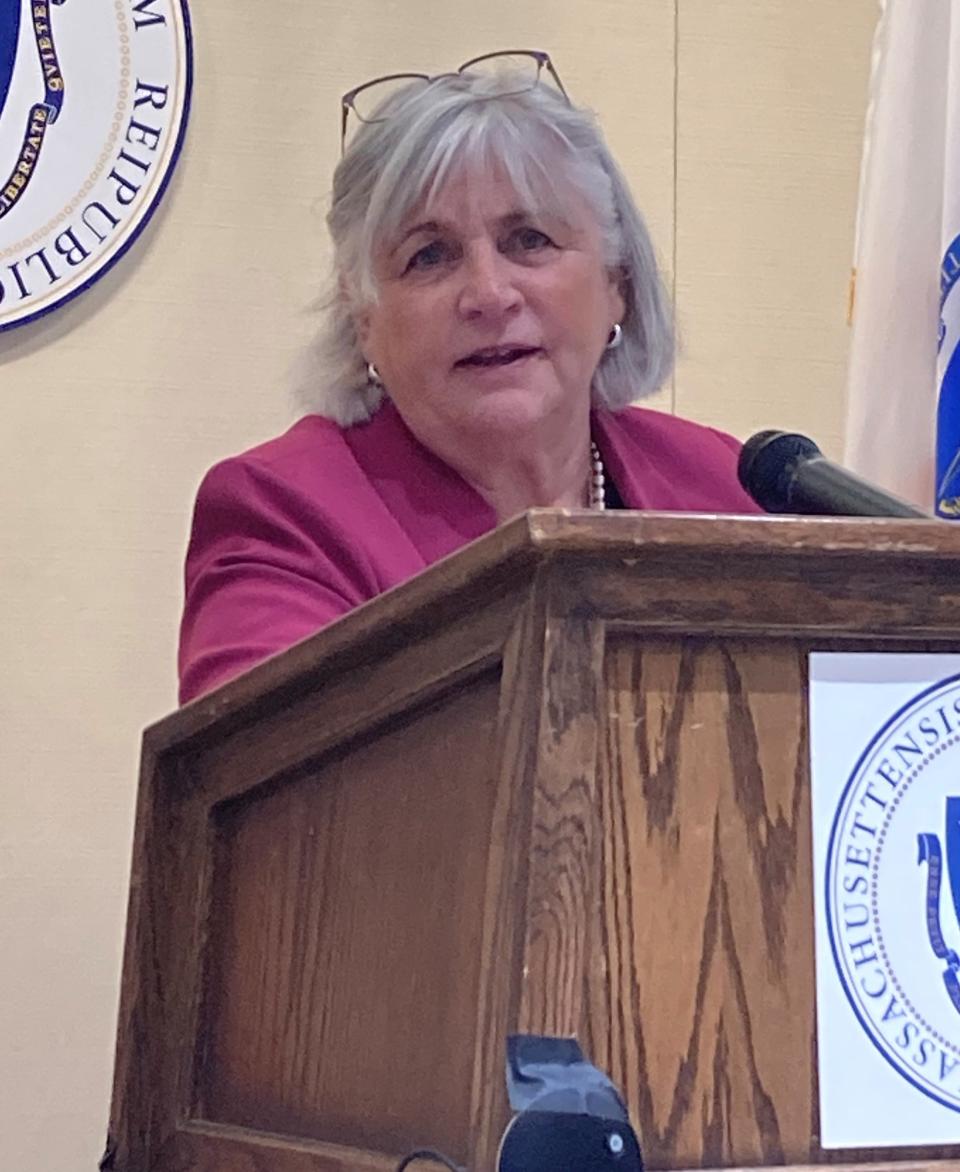Worcester health official Rosen urges legislative action on overdose prevention laws
BOSTON — Worcester public health officials stepped up in March and voted to establish an overdose prevention center in the city. Now, it’s up to the state government to enact the legislation that would allow the city to do so.
Gary Rosen, a member of the city's Board of Public Health, traveled to the State House Thursday to tell them as much.

"We, the Board of Health, voted to approve, support, sanction the program, pick your word," Rosen told public health officials and workers from across the state attending the second annual Public Health Lobby Day organized by the Massachusetts Public Health Association.
The dozens of officials gathered to visit with legislators and their staff in support of proposed legislation, including the bill that would allow communities to establish overdose prevention centers.
Officials were also there supporting two other bills — a $50 million bond bill to rehabilitated older housing units and mitigate household pollutants, lead paint, mold and asbestos; and an omnibus bill to set clear and consistent operating standards for the 351 municipal boards of health. The bill, dubbed SAPHE 2.0, would invest in public health infrastructure to ensure Massachusetts residents are afforded the same level of service, regardless of where they live.
In supporting overdose prevention sites, Rosen said the task of a board of health is to ensure the health and safety of the community it serves. Two months ago, he said, it was clear to the Worcester Board of Health that the city was leading the state in opioid overdose mortality rate. The board's five members feared Worcester was on its way to recording 200 deaths a year.
"We could not and will not accept that,” Rosen said, adding the board voted unanimously to approve a prevention center.
“Our vote told the Legislature that the second-largest city in Massachusetts was willing to implement a pilot program,” Rosen said, adding that board did receive blowback from city officials who are reluctant to endorse the concept, fearing a center will have negative implications both for the neighborhood where it might be located and the city itself.
“We took the vote, ruffled feathers, the city councilors will live,” Rosen said.
However, without the centers, residents suffering from substance use disorders may not. Some 200 centers are operational in 10 countries around the world, including Canada, Portugal, Switzerland, Australia and the U.S. Not one has reported a single overdose death.
The first center opened in New York City in 2021. There are now two in the city, and one is poised to open in Providence, R.I., sometime this year. In Massachusetts, Somerville has long discussed the need to open a center and commissioned a feasibility study by Fenway Health. That organization suggested the city needed at least one site and recommended it be located in one of two neighborhoods.
In addition to medical supervision and intervention in case of an overdose, the centers traditionally serve as hubs for wraparound services that include supports for mental and physical health, substance testing, needle exchanges, housing, jobs and even as paths to rehabilitation.
“It will save lives,” Rosen said. A former city councilor, Rosen said he has learned and grown through his service on the board. He now wonders how many lives may have been saved and families spared anguish if he had voted in favor of a needle exchange program more than a dozen years ago when it was first proposed in the city.
When it was presented again, Rosen voted in favor of the program. Now, when local and regional lawmakers have the opportunity to vote in favor of the overdose prevention centers they can ask themselves, How many lives will their vote save?
In 2022, public health officials said, 2,357 people died of opioid overdoses in Massachusetts, the deadliest to date in the state.
Sen. John Keenan, D-Quincy, sponsor of the Massachusetts Health Homes Act, said it was designed to address health issues stemming from indoor pollutants, such as brain damage and developmental delays in children caused by lead paints, asthma triggered by mold and insect infestations, and even lung issues from asbestos insulation and building materials.
The bill would also help mitigate the state’s housing crisis, rehabilitating the state’s older housing stock and ensuring its safety for residents. The bond bill would provide grants and low-interest loans to homeowners and landlords to tear up old carpeting, treat for insect infestations, mitigate mold, eradicate asbestos insulation and remove lead paint.

“Yes, we need to build new housing, but we also have to make existing housing safe for residents,” Keenan said.
Sarita Hudson of the Public Health Institute of Western Massachusetts agreed. Founder of the Pioneer Valley Asthma Coalition, Hudson said that addressing the triggers to environmental ills is key to treatment.
“You can educate, medicate and discuss triggers for asthma,” Hudson said. “But if you people home to mold, pests, old carpets, they will be back with the same health concerns, the same outcomes. We have to fix the homes.”
Keenan also endorsed passage of the overdose prevention centers after visiting several throughout North America.
“My observation: If done well, the centers save lives and have a positive impact in the neighborhoods where they are located,” Keenan said. He told the audience that he had visited the centers at all hours to determine the impact of the centers on their neighborhoods.
One of the questions asked about the centers is whether they truly serve as pathways to treatment and rehabilitation. “Yes! I saw it happen in New York City, someone came in and asked,” Keenan said. However, their primary purpose, he noted, is to save lives.

The overarching bill SAPHE 2.0, sponsored by Reps. Hannah Kane, R-Shrewsbury, and Denise Garlick, D-Needham, and Sen. Jo Comerford, D-Northampton, would ensure minimum public health standards for all public health departments in Massachusetts. Standards would pertain to uniform data collection and reporting systems, increase the capacity and efficiency of departments by incentivizing shared services, and increase state funding equity across the state.
The bill passed both branches of the Legislature in the last session but was vetoed in the final days of the session by former Gov. Charlie Baker. Garlick, one of its sponsors, said she has still not reconciled to the veto.
“I hope to recover one day,” Garlick said of the defeat. She believes it was vetoed because of “someone in the governor’s office, whispering in Charlie Baker’s ear,” that while it was a good idea, the state could not afford it. “That’s happening now.”
Garlick urged the officials to speak with legislators and staff to counter those whisperings and to emphasize the importance of its passage to local departments of health to ensure all Massachusetts residents have access to the same level of public health care.
This article originally appeared on Telegram & Gazette: Gary Rosen urges legislative action on overdose prevention laws

